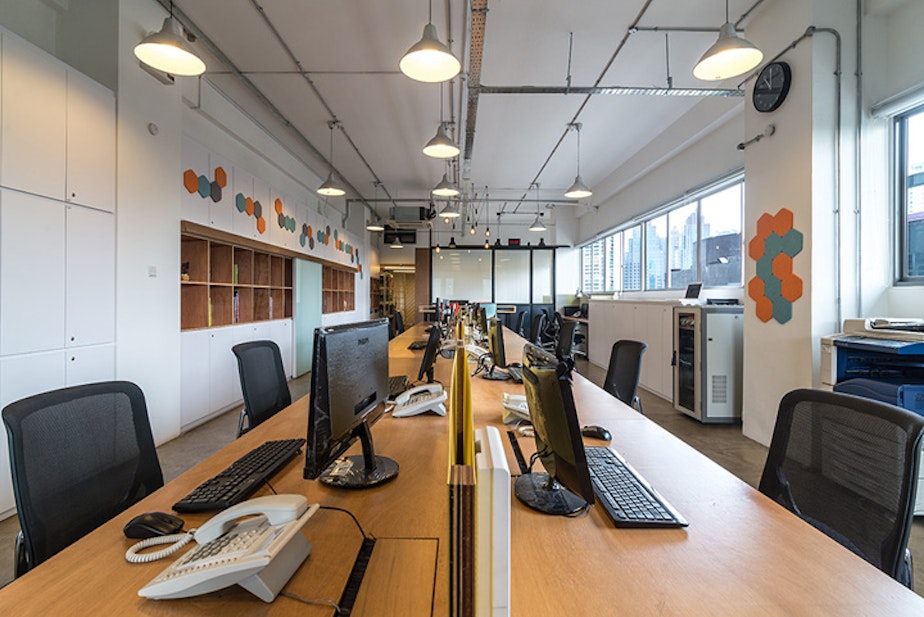Should we ask about people's personal lives at work?

It’s Monday morning and your boss walks by and asks about your weekend. That’s fine if you like talking about your weekend. If you don't, how are you going to refuse? Do you just say your weekend was fine and hope your boss goes away. Should we even be asking about personal lives when we're at work?
Chuck Sloan and Meghan Doherty answer questions like this professionally. Sloan is the Ombud at the University of Washington. Doherty is author of How Not To Be A Dick: An Everyday Etiquette Guide.
Bill Radke: Chuck, a UW employee recently wrote to you and asked how to handle that weekend question. Why did the question bother this employee?
Chuck Sloan: This came out of a scenario that my office put out as an example of why folks would come to the Ombud office at the UW. The scenario was that a supervisor asked what the employee did over the weekend and one of the folks wasn't comfortable sharing that information.
What was your advice?
Sloan: Well, in this situation the person's goal was to kind of get by. They didn't want to ruin their relationship with the supervisor. So we figured out how best to answer the question in a way that doesn't reveal things you don't want to share and how to plan for that question coming up every week and have a response you’re comfortable with. For example, you could say you got up early on Saturday and saw an amazing sunrise or you planted something in your garden. Or maybe asking questions of the other person to show that you’re interested in the conversation even if you weren’t willing to share a whole bunch about your own weekend.
Meghan, what would your advice be?
Meghan Doherty: I would love the person to give an honest answer. “I watched Netflix all weekend and ate a ton of pizza by myself.” Or, “I got into a fight with my boyfriend, I drank too much wine and I'm hungover. Thank you for asking.” As a boss, I can see that the person wants to be personable and show that they're acknowledging your presence and that they're genuinely interested in you as a person. But you definitely need to gauge the situation. Are you just returning the pleasantry like, ‘You know, I got plenty of rest. Thank you for asking. How was your weekend?’ Or is this person like a friend where you can be more honest.
You're both bosses now. Chuck, do you ask employees how their weekend was?
Sloan: I do, but I’m blessed to have a small team. I think it's incumbent upon the supervisor to be socially aware and to be picking up on cues when someone seems a bit uncomfortable and perhaps to check in with that person one to one to try to figure out is there’s something going on. I would say in previous iterations of my career, working with other folks, I wouldn't have brought that up as I could tell, based upon their response, that wasn't something they were happy to do.
Doherty: There is consent in conversation. If you're reading the cues and people are not giving you consent to continue this conversation by all means stop and move on. Everything you do with another person is based on consent.
Bill: Why not just say ‘Hi Meghan, I hope you had a good weekend’ and just shut down the question maybe no one would miss it.
Doherty: I travel for work and people constantly comment about how Americans ask you how you're doing but they don't really care. So it’s definitely in our DNA and in our American culture.
Sloan: I don't want to limit what our workplaces could be. I think about it sometimes within the frame of Maslow's Hierarchy of Needs. Are we looking at workplaces as something that are just supposed to tend to the lowest rung of basic needs or are we looking at something that’s closer to self-actualization or happiness? I think in the right work situations you can move towards a back and forth where folks are honestly curious and willing to share. But you do need to be careful about it because that's a lot of trust that's being built up over time and through some positive interactions. I don't think you assume you can have it but I wouldn't want to wall us off and say that we can't have that in our workplace because I know that for a lot of us it's really fulfilling to ask those questions and have that sort of input with folks.




